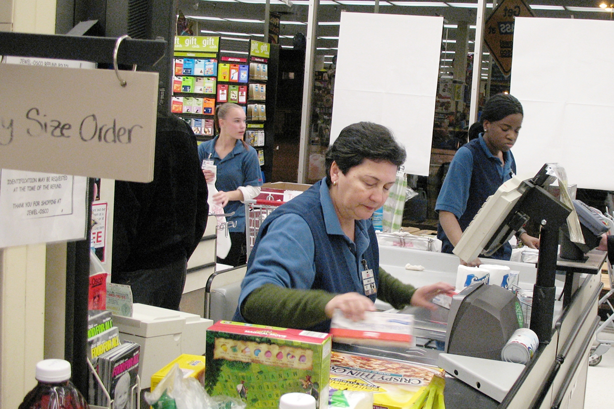By Katherine Gibson (The Cascade) – Email
Print Edition: March 26, 2014

Ever wish you could share all the things you really think while working behind the counter at your retail job? Thanks to UFV’s school of business assistant professor Kirsten Robertson, you now have the chance.
Trading a $5 Tim Horton’s card for the shared experiences of UFV students working in retail, Robertson sees her project as a step toward adding the worker’s voice to the current academic conversation surrounding the industry.
“What are the stories? What are the experiences? See this from the worker’s point of view,” Robertson says. “I think the challenge with customer service workers is, compared to other groups, [they] have less power in the workplace … So sometimes [they] can be overlooked. I felt this was a way to give a voice to [those] people — to say, ‘your experiences matter.’”
Having worked in retail herself for many years as a cashier and in a coffee shop, Robertson is no stranger to the flaws of the industry. Recognizing the potential for positive change, she hopes her project will not only empower those sharing their experiences, but also give the retail industry an opportunity to better itself as a whole.
“We know turnover is very high, and that’s super costly. It can be hard to keep good people,” says Robertson. “I think that if we can make the jobs more enjoyable; if we can design them in a way that people are satisfied [and] … if we can make those things more positive, hopefully we can make people stay for longer and be happier.”
Robertson’s ultimate goal is to share her findings with the business world. She is looking to publish her report in a management journal and submit her results to a management conference. Participating in Robertson’s research gives UFV students working in retail the chance to voice their opinions and have their stories heard.
“We have this great opportunity to contribute to understanding the world and work,” she continues. “[This project] is an opportunity to be a part of that and have your experiences be counted.”
While some students may be hesitant to share their experiences, fearing potential fallout from speaking on record about their respective employers, Robertson emphasizes that the research will remain completely anonymous. Her hope is simply that students will be willing to share their vast array of experiences and get the opportunity to have their voice counted.
“I hope students want to get involved … it’s certainly not something where I’m looking to judge them or say that they’re a good worker or a bad worker,” Robertson concludes. “It’s certainly not going to reflect badly on anyone. I just want to learn and hear all of [their] interesting stories and experiences.”

